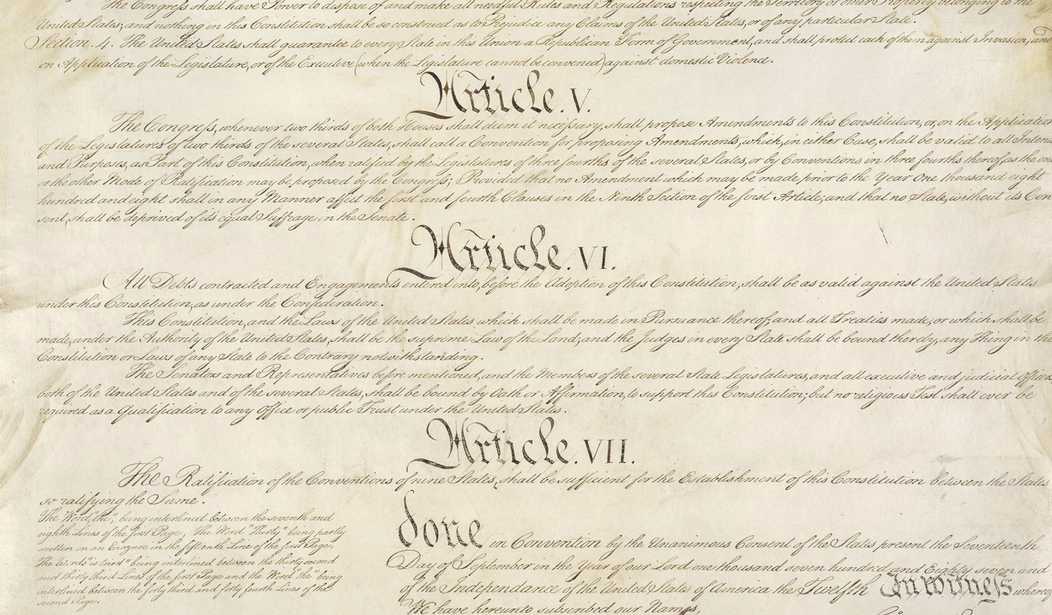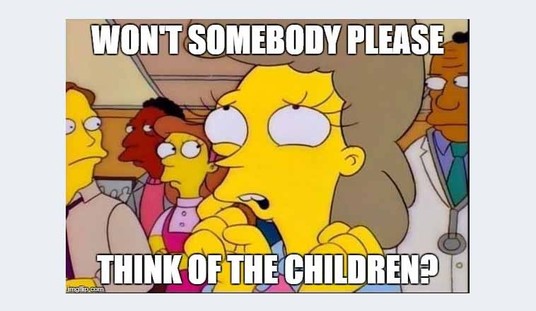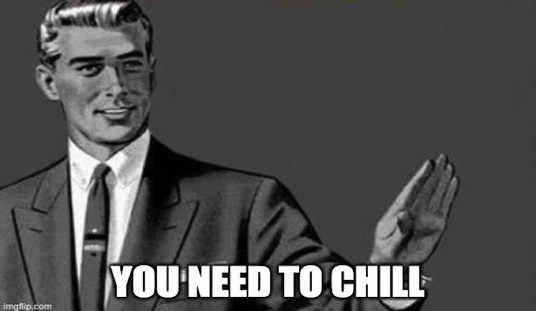We are blessed to have a First Amendment. Just take a look at what's happening to our friends across the Pond -- arrested for 'offensive' Facebook posts (while roving gangs of Muslims attack British citizens, but priorities, right?).
The entire purpose of the First Amendment is meant to protect unpopular and, yes, offensive speech. To prevent things like the government punishing you for being critical of them, as in the case of Tulsi Gabbard, who is now on the 'Quiet Skies' terror watch list, likely because she was critical of Kamala Harris and the Biden administration during an interview with Laura Ingraham.
It is a necessary and vital component of a free people. It should be as broad as possible, whenever possible. But there are limits, as I'll discuss in a moment.
So when this story came across my feed, it warranted a second look.
Majority of Americans believe the First Amendment goes too far: poll https://t.co/dhinptdg8C pic.twitter.com/3TJtjLh1jO
— New York Post (@nypost) August 7, 2024
Recommended
About 53% of Americans believe the First Amendment goes too far in the rights it protects, according to a new poll by the nonprofit Foundation for Individual Rights and Expression, or FIRE.
The poll, conducted July 5-10, is the latest installment in the National Speech Index, a quarterly survey designed by FIRE and the Polarization Research Lab at Dartmouth College to gauge public opinion on freedom of speech.
If 53% of Americans genuinely think the First Amendment goes 'too far', we have problems. Heck, the Democratic Party VP candidate Tim Walz is on record saying 'misinformation' is not protected by the First Amendment (spoiler alert, Timmy: it is).
Do a majority of Americans actually gree with Walz? Scary, if true. I had to dig deeper and find out.
I looked at the crosstabs of the question in particular, and I'm not a fan of the answer choices given to respondents.
The question in particular reads:
Based on your own thoughts about the First Amendment, can you tell us what you think about the following statement: “The First Amendment goes too far in the rights it guarantees.”
And here are the responses in handy-dandy table form:
| Response | Frequency | Percent |
| Does not describe my thoughts at all | 465 | 47 |
| Slightly describes my thoughts | 95 | 9 |
| Somewhat describes my thoughts | 161 | 16 |
| Mostly describes my thoughts | 161 | 16 |
| Describes my thoughts completely | 118 | 12 |
Breaking down the poll into five different answers clouds the issue. What does 'slightly describe' mean? If given a binary choice, it would appear 56% (or more) might disagree that the First Amendment goes 'too far.'
The problem here is the definition of 'free speech' has, in some ways, gotten extremely convoluted and misunderstood. And intentionally so. It's why the Left will say speech they don't like is 'violence', while violence they approve of is merely 'free speech.' No wonder people are confused.
There are certain things that aren't protected by the First Amendment. Issuing death threats. Blocking roadways. Or riots. Or going to the private homes of Supreme Court justices because you hate their politics. Those things do not fall under the First Amendment (see that whole 'peaceably assemble' thing). Yet we've tolerated such behavior for decades now, and it's only going to get worse in the wake of what happened on college campuses all spring and the pro-Hamas riot in DC a few weeks ago. That which is rewarded gets repeated.
So when respondents to the poll answer anything other than 'does not describe my thoughts at all', are they taking that into consideration? Because if they are then yes, you could make a reasonable case the First Amendment goes 'too far' in some circumstances.
On the other hand, if a majority feel -- like Walz -- certain speech they don't like (and that's what 'misinformation' actually is) should be censored, we have a problem. If only we had a group of people whose entire job was to investigate such matters and report on the facts.
Alas, we don't. So we get clickbait like this from The New York Post; a scary headline when the reality is probably more nuanced, even in a post-nuance America.

























